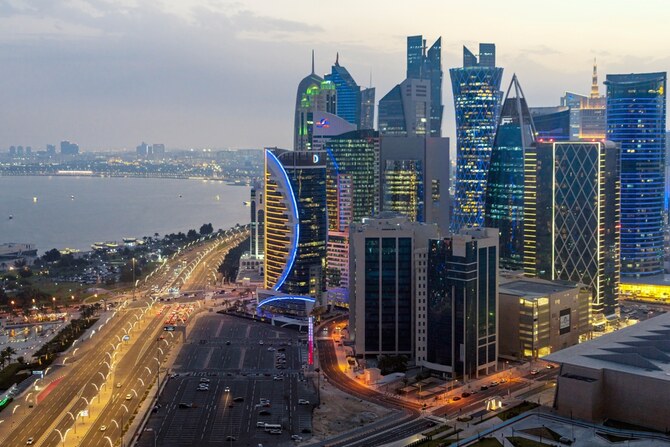RIYADH: Qatar has retained its AA credit rating from Fitch Ratings, with a stable outlook, supported by the country’s expanding liquefied natural gas production capacity and high per capita income.
The US-based agency highlighted Qatar’s strong fiscal position, citing one of the world’s highest gross domestic product per capita figures and a flexible public finance framework that bolsters the country’s resilience.
An AA rating signals very low credit risk and a robust ability to meet financial commitments, even in the face of foreseeable economic pressures.
Qatar’s strong credit rating aligns with the broader trend in the Middle East, where countries are steadily diversifying their economies to reduce reliance on crude revenues.
In February, Fitch affirmed Saudi Arabia’s IDR at A+ with a stable outlook, while the UAE received a rating of AA-. The agency also affirmed Kuwait’s AA- rating in March.
“Qatar’s ‘AA’ rating reflects one of the world’s highest GDP per capita, our expectation that additional gas production will strengthen public finances and a flexible public finance structure,” said Fitch Ratings.
The report highlighted Qatar’s plans to expand LNG production capacity from 77 million tonnes per annum to 110 mtpa in 2026 and 126 mtpa by 2027, eventually reaching 142 mtpa by 2030.
According to Fitch, state-owned Qatar Energy’s North Field projects will support both hydrocarbon and non-hydrocarbon growth from 2025 to 2030.
North Field, which holds nearly 10 percent of the world’s known LNG reserves, lies off the northeast shore of the Qatar peninsula, covering more than 6,000 sq. km — roughly half the country’s land area.
“Funding plans for the 2030 phase will depend on hydrocarbon prices at that time but we expect it is likely that most of the project will be funded with internal resources,” added Fitch.
The agency also projected that Qatar’s government debt-to-GDP ratio will fall to about 43 percent by 2027, down from 49 percent in 2024 and a peak of 85 percent in 2020.
Fitch noted that Qatar’s government is expected to refinance most upcoming external market debt maturities and pay down external loans using a moderate budget surplus, excluding income from its sovereign wealth fund investments.
Qatar’s sovereign net foreign assets per GDP reached $398 billion in 2024, up from $347 billion in 2023, reaffirming the country’s strong financial standing.
However, the report also outlined key constraints that could impact Qatar’s rating in the future, including its heavy reliance on hydrocarbons, higher government debt-to-GDP ratio compared to regional peers, and regional stability risks.
“Qatar has broadly normalized its relations with the GCC in recent years, although points of tensions remain. Qatar continues to position itself as a mediator in relations between Western powers and Iran and Hamas, among others,” Fitch noted.
It added: “High tensions in the region and uncertainty around US Middle East policy contribute to the persistence of regional geopolitical risks, which could impact Qatar, although it has so far not been directly affected.”
















